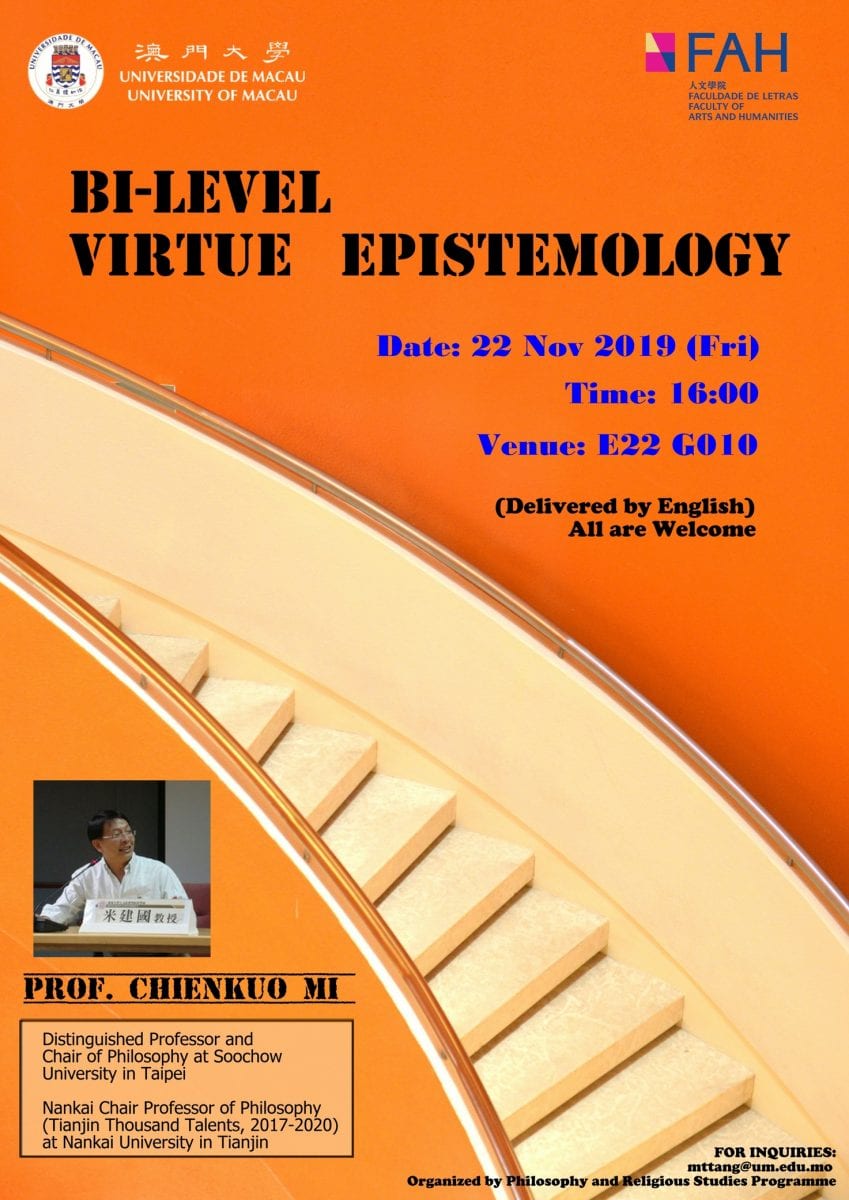

FAH/PHIL Guest Lecture – “Bi-Level Virtue Epistemology” by Prof. Mi Chienkuo, Soochow University, Taiwan
2019-11-22 @ 4:00 pm
Abstract
At the beginning, I would bring in Ernest Sosa’s project of performance-based normativity, in which the 3-A model of evaluating a performance is introduced. That means, in order to be a good performance, three important elements are required: they are accuracy, adroitness, and aptness. In addition, the model can be stacked up and move from aptness to meta-aptness and full aptness. And then, I will continue to explore action-based normativity (or agency-based normativity), in which we can obtain two frameworks of human actions or agency: Framework I: The loosely deontic framework (one that highlights functional and mechanical faculties). It is an intermediate region, which admits a kind of agency involved in functional actions, the unfree agency of proper functioning. Agents who merely function are subject to flaws or faults, rather than sins or infractions (or violations). Framework II: The more strict deontic framework (one that presupposes free and intentional determination). In the region of freedom, the agency involved in the actions or performances which are freely determined endeavors can be either praised or blamed. Finally, I will touch upon an important Confucian text, The Great Learning, and discuss its possible dimension of virtue epistemology. The Great Learning is concerned with the idea of “reflection” (the higher-order cognitive competence or meta-cognition), it is also concerned with the idea of “extended knowledge”. According to The Great Learning, it is the higher-order virtue that can allow us to start on the path to the achievement of the best kind of epistemic goods, such as understanding and wisdom. The Great Learning instructs us that we should begin with the “comprehension of things”. This means that we should, in a systematic way, take in a subject matter or information. Eventually this will allow us to correct our own mind through reflection, and so facilitate the strengthening of open-mindedness, intellectual humility and intellectual fairness, and cooperation with others.

